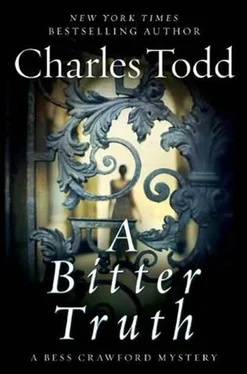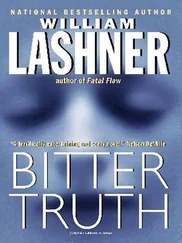I reached into the bed and unfolded the blanket that had been a barrier against the cold in this room. Then I lifted the little nightdress that was too large by half.
What I saw made me draw back quickly.
“She has chicken pox. It has finally erupted. I must wash my hands at once, for I work with wounded men. But I will tell you how to treat her. And you must remove this other child quickly. She and the others may have been exposed already. But if you keep Sophie quarantined, you may escape a general outbreak.”
“But when I bathed her last evening, there were no spots,” she said, leaning over the crib to examine Sophie’s back.
“No, possibly not. But warm water would have hastened the eruption. Please cover her again. I dare not touch her.”
The nun gently drew the nightdress together again and then tucked the blanket around the child.
Between us we moved the other crib into another room where one of the nuns slept. And then I was shown to a kitchen where I could wash my hands with a scrap of carbolic soap and dried them on a towel that had seen better days.
“Soap is hard to come by,” the nun said, apologizing.
“I understand,” I said, wishing I had a cake to give her.
The problem was, if Sophie was ill, leaving here with her was out of the question. Even if I could persuade Sister Marie Joseph to allow me to take her. For that matter, where could I take her? A dressing station was no place for a child. And I had no more leave coming to me for the foreseeable future. Was Lydia even of the same mind about wanting her? I could try to find Roger Ellis, but was that wise? I hadn’t been able to read his intentions toward this child. Still, she must be his. She couldn’t look so much like Juliana if she weren’t.
After that one letter from Lydia reporting the inquest, there had been no others. I didn’t know whether they had failed to reach me or she hadn’t written.
I said to Sister Marie Joseph after I’d washed my hands and accepted the offer of a little coffee from their precious store, “I know this child’s family. I wish to ask them what they would have me do, now that Sophie has been found. Will you keep her here, until I’ve learned what is expected of me?”
“I would like to see this child-indeed all the children-safe. But we have been charged with her care, and I cannot simply hand her over to you or anyone else, without some proof that you have the authority to take her.”
“I understand,” I said. “You must be assured that this is not a frivolous request.”
“I permitted you to see her, because you are a nursing sister,” she went on. “A woman I could trust with the knowledge that she is here. And to reassure her English father that she has not been abandoned. But beyond that, there is nothing I can do until it is decided that she belongs in your charge. There is an avocat -a lawyer,” she added in English when I frowned over the term, “here in Rouen who arranged for this house to be left in our care. You must speak with him, and if he agrees to represent this child, we will abide by whatever decision he makes for her future. There could be the question too of any inheritance. It’s possible that her mother’s husband provided for her.”
“That’s very fair,” I said. I hadn’t considered a French husband.
She rose in a swirl of black wool, and I knew she was pleased with my answer. Crossing to the small desk behind where I was sitting, she found paper and pen and wrote out the name and the direction of the French solicitor. Bringing it to me, she said, “Sophie is very pretty-it will not serve her well, this beauty, in the future. We cannot protect her always. You understand?”
“I do understand. Completely. Has anyone else come in search of her?”
“No. We were certain that the father must be dead. To abandon such a young child seemed cruel. Unless of course he has a wife in England. These things happen, you know.”
Sadly, I did.
Thanking her, I left the house and went out to the Major’s motorcar. Turning it, I drove back the way I had come to prevent getting lost in the twisting streets. It had started to rain, the cobblestones slippery and grimy under a darkening sky.
I had just passed the cathedral for the second time, searching for the Street of Fishes, where the avocat lived, when I saw that another motorcar was coming toward me. I pulled over as far as I dared in the narrow, medieval street, to allow it to pass me. The wings were dented and the paint was scratched but I recognized it as English, then looked up to see who was driving it.
He must have turned to look in my direction because I was conspicuous in my blue coat and hat. Anyone in this part of France could identify my uniform at a glance.
Our eyes met, and I recognized Captain Ellis in the same instant he recognized me.
What was Roger Ellis doing in Rouen? Was he this close to finding little Sophie too?
His reflexes were faster than mine. He spun the wheel, and before I could grasp what he was intending, he’d turned his motorcar across the path of mine, and it was all I could do to grip the brake hard enough to prevent the Major’s motorcar from crashing into his.
He was already out of his vehicle, and before I could reverse, he had opened the near passenger-side door and slid into the seat beside me.
“Are you following me?” he demanded, flushed with anger.
Quickly rethinking the situation, I said, “No. I’m on leave. What are you doing here?”
“Whose motorcar is this?”
“It’s none of your business.”
“Pull over.”
“No. Why?”
“Because the middle of the road is nowhere to talk.”
My first reaction was to tell him I would do nothing of the sort, and then I thought about Sophie, and I decided that agreeing with him might make more sense than refusing and driving away, leaving him to do as he pleased after I was gone.
“All right.”
He was instantly suspicious. “I’ll stay here until you do.”
I reversed, found a place to leave the motorcar, then got out and walked with the Captain to his, waiting while he pulled it out of the middle of the road and brought it around behind the Major’s vehicle.
Then, taking my arm, he guided me to a small bistro that was still open just down the street. It was narrow, grimy, and filled with the smoke of those French cigarettes that caught at the back of the throat. I coughed as he led me to a small table. The top was ringed with circles from the glasses of previous occupants, and I felt like taking out a handkerchief and wiping it clean. The proprietor came over, nodding, and swiped at the circles with a cloth that might once have been white.
I had expected to be the only woman present, but while I was the only one in uniform, there were a number of others, mostly middle-aged and in black. In the provinces, French women wore black as a rule, but I had a feeling from their long, joyless faces that this was mourning, not fashion. There were no young men present, only those past the age of military service, or even elderly. There was very little conversation, as if everyone was sunk in his or her own thoughts.
Roger Ellis ordered wine and asked if I preferred a coffee. I nodded, wanting to keep a clear head.
“Why are you in Rouen?” he asked a second time.
“I told you, I’m on leave.”
“Sister Crawford. You are driving a motorcar that isn’t your own, and you’d hardly take an excursion to Rouen, which is crowded with refugees and new recruits, just to have a look at the cathedral. Where are you staying?”
“I’m not. As you say, I came to see the cathedral. I was driving back to Calais when you saw me.”
Читать дальше












